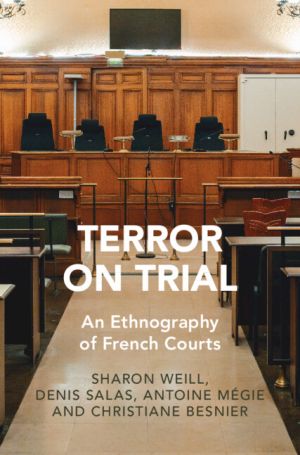
Grounded in legal ethnomethodology, this book explores terrorism trials in France. Drawing on extensive court ethnography, a multidisciplinary research team examines how terrorism logics are reflected, represented, and negotiated within criminal proceedings. Based on hundreds of hearing days-ranging from small terrorism criminal cases to the so-called 'trials for history', commonly known as the 'Charlie Hebdo' and the 'Bataclan' trials-this study offers a nuanced, bottom-up perspective on the role of courts.
Through courtroom immersion, close observation of legal performances, and interviews with judicial actors, it investigates how justice is shaped in practice. Identifying three generations of trials, the book provides original insights into the evolving role of courts in terrorism cases. From an empirical and comparative perspective, it also seeks to make criminal trials more accessible to Anglophone readers, offering a deeper understanding of how terrorism is prosecuted in France, highlighting the role of judges, prosecutors, lawyers and victims.